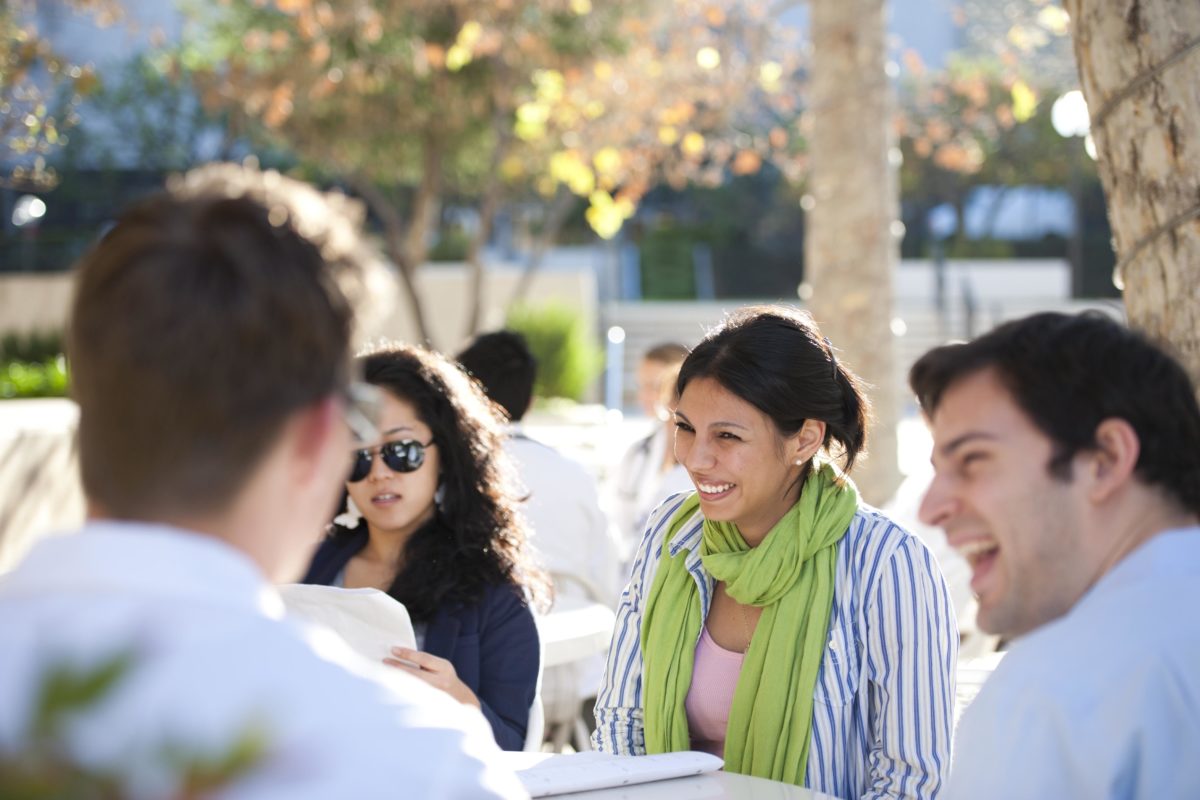
USC has been awarded a $5 million training grant from the California Institute for Regenerative Medicine (CIRM) to prepare PhD students, postdoctoral researchers, and clinical fellows for careers in stem cell research. CIRM also approved 17 other training programs at universities and clinical facilities across California, including one at USC-affiliated Children’s Hospital Los Angeles (CHLA). CIRM’s total investment in these new training programs is $86 million, and the goal is to create a diverse group of scientists with the knowledge and skill to become the next generation of stem cell leaders.
The awards come less than a year after Californians voted to dedicate $5.5 billion of public money to renew CIRM, which is the state agency that was founded in 2004 to distribute funding to support stem cell science and regenerative medicine.
Since its founding, CIRM has invested $23 million in stem cell training programs at USC and its affiliate CHLA, producing researchers who are now industry leaders and professors at MIT, Columbia, UCLA and other top universities.
USC is also home to 3 complementary NIH-funded training programs in developmental and stem cell biology, hearing and communication neuroscience, and craniofacial biology.
“USC’s new CIRM Training Program will bridge stem cell research with its clinical potential,” said Steven Shapiro, Vice President for Health Affairs at USC. “By bringing together PhD students and postdocs with clinical trainees in an exceptional stem cell research environment associated with one of the country’s largest hospital systems, we aim to strengthen ties between basic researchers and clinicians working in the field of regenerative medicine.”
Each year, USC’s new training program will provide support for 5 PhD students, 5 postdoctoral researchers, and 3 clinical fellows. USC will also continue to offer its Broad Clinical Research Fellowships, which have funded 3 clinical fellows each year since 2015. Each trainee will receive support for a 2- to 3-year period, and the training program will run for 5 years.
Sixty-seven USC faculty members will serve as mentors, spanning fields from stem cell biology to bioengineering, from computational biology to clinical practice. A physician-scientist will also co-mentor each trainee.
“A very unique feature of our training program is the opportunity for each trainee to have a clinical co-mentor,” said Denis Evseenko, who is the co-principal investigator managing the clinical component of the training grant, the J. Harold and Edna LaBriola Chair in Genetic Orthopedic Research, and an associate professor of orthopaedic surgery, and stem cell biology and regenerative medicine. “This will ground our trainees in both the actual needs of patients, and the life-changing potential to develop clinically relevant therapies.”
Jay Lieberman, Chair of the Department of Orthopaedic Surgery, added: “Given the critical role of physician-scientists in advancing stem cell research to clinical trials, there is a need to provide opportunities for our MD students and medical residents to engage in laboratory experiences, as well as for our PhD students to connect with clinical realities. USC’s new training program will accomplish both objectives.”
In addition to specialized course work, USC’s training program will offer career workshops as well as weekly seminars and an annual retreat where PhD students, postdoctoral researchers, and clinical fellows present their ongoing research.
“Our trainees will develop the full array of skills needed to succeed in either academia or industry careers,” said Justin Ichida, who is the co-principal investigator overseeing the postdoctoral aspect of the training grant, as well as the John Douglas French Alzheimer’s Foundation Associate Professor of Stem Cell Biology and Regenerative Medicine, and a New York Stem Cell Foundation-Robertson Investigator.
Trainees will also enjoy opportunities develop their teaching and mentoring skills by working with USC master’s students and undergraduates, as well as with local LAUSD high school students that participate in the USC Stem Cell Scholars Program.
“USC has a very active stem cell research community, and this provides an ideal environment to prepare the next generation of world-class researchers,” said Gage Crump, who is the overall training program director, and the faculty director of USC’s PhD program in Development, Stem Cells, and Regenerative Medicine.
Ite A. Offringa, Associate Dean for Graduate Affairs at the Keck School of Medicine of USC, added: “A great strength of our stem cell PhD program is that it’s part of USC’s larger suite of Programs in Biological and Biomedical Sciences, which enhances interdisciplinary as well as clinically-focused research opportunities.”
Over the past 15 years, USC has built a robust stem cell research enterprise, encompassing a dedicated building and research center, a department and a university-wide initiative bringing together more than 100 clinical and research faculty from across the university and CHLA.
“Regenerative medicine will significantly impact medicine in 10 years, and change medical practice in 25 to 30 years,” said Andy McMahon, director of the Eli and Edythe Broad Center for Regenerative Medicine and Stem Cell Research at USC. “We look forward to accelerating our efforts to produce the next generation of researchers who will bring stem cell therapies to patients.”
To learn more about funding opportunities for stem cell researchers at all stages of their careers, visit https://stemcell.keck.usc.edu/funding/internal-funding/.
